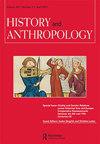冥想很重要:20世纪90年代至70年代印尼、印度和西方之间瑜伽和精神改革的政治和网络
IF 0.4
2区 历史学
Q3 ANTHROPOLOGY
引用次数: 0
摘要
本文章由计算机程序翻译,如有差异,请以英文原文为准。
Meditation matters: The politics and networks of yoga and spiritual reform between Indonesia, India and the West, 1900s–1970s
ABSTRACT Starting from sites of yogic and Buddhist learning connecting Indonesia and India this article explores the politics, practices, transformation, dissemination and uses of knowledge on yoga and meditation in late colonial and postcolonial Indonesia, and their relation to moral geographies of Greater India. It follows, across (violent) regime changes, the trajectories of learning of a number of self-made experts and entrepreneurs in this field who were also involved in the postcolonial Buddhist reform movement in Indonesia: the Chinese Indonesians Souw Tjiang Poh (b.1929), better known, also as yoga guru, under his Buddhist name Yogamurti; and his meditation teacher, Tee Boan An (1923–2002), who, as Ashin Jinarakkhita, is more famous as motor behind the Buddhist reform movement in Indonesia from the 1950s onwards. Yogamurti's and Tee Boan An's histories of ‘yogic’ transformation reach back to ‘alternative’ spiritual reform trajectories of the Theosophical Society of late colonial times, and continue, across decolonization and the violent regime change of 1965, to those of the hippie trail of the 1970s. These spiritual and ‘Indic’ religious revivalist entrepreneurs provide alternative perspectives to the grand narratives of political history, yoga, ‘Indian religion’ or ‘Greater India’. Across regime changes, their paths crossed and they exchanged knowledge, thereby changing and reshaping social hierarchies as they moved within an ‘alternative present’ in which spirituality seemed a way to move forward to ‘alternative futures’.
求助全文
通过发布文献求助,成功后即可免费获取论文全文。
去求助
来源期刊

History and Anthropology
Multiple-
CiteScore
1.80
自引率
0.00%
发文量
41
期刊介绍:
History and Anthropology continues to address the intersection of history and social sciences, focusing on the interchange between anthropologically-informed history, historically-informed anthropology and the history of ethnographic and anthropological representation. It is now widely perceived that the formerly dominant ahistorical perspectives within anthropology severely restricted interpretation and analysis. Much recent work has therefore been concerned with social change and colonial history and the traditional problems such as symbolism, have been rethought in historical terms. History and Anthropology publishes articles which develop these concerns, and is particularly interested in linking new substantive analyses with critical perspectives on anthropological discourse.
 求助内容:
求助内容: 应助结果提醒方式:
应助结果提醒方式:


